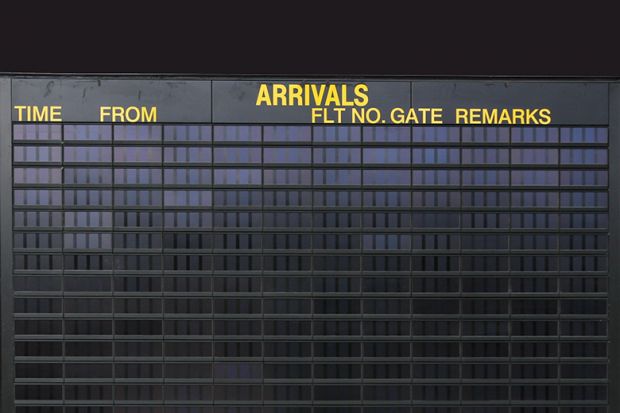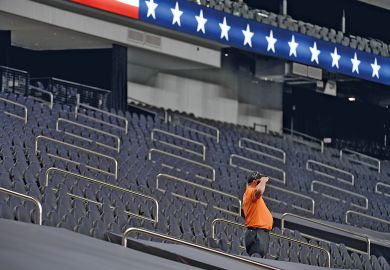US undergraduate enrolment declined nearly 5 per cent in the spring semester, another surprise slide seen inside the sector as yet more evidence that higher education is losing its perceived value.
The annual compilation by the National Student Clearinghouse Research Center showed enrolment gains in job-oriented studies, but contractions in most other areas, with especially large reductions among black students.
“The declines are becoming much more widespread” across four-year institutions after primarily affecting two-year colleges early in the Covid outbreak, said the centre’s executive director, Doug Shapiro.
“That says that it’s more than just the pandemic, it’s more than just low-income minority communities,” Dr Shapiro said in a briefing to outline the data. “There is a broader questioning of the value of college, and particularly the concerns about student debt and paying for college and the potential labour market returns.”
Dr Shapiro cautioned that spring enrolment shifts can be poor indicators of overall trends, since new enrolment at that stage is only about one-twentieth of the size of entering classes in the autumn semester.
And among students who enrolled in college for the first time ever, institutions this spring added 13,700 students, or 4.2 per cent, after recording a one-year decline of 3.5 per cent the previous spring.
Yet among all undergraduates, enrolment this spring decreased by more than 662,000 students, or 4.7 per cent, from spring 2021. That is nearly as bad as the 4.9 per cent single-year reduction in spring 2021, the Clearinghouse said. And the Clearinghouse’s autumn semester numbers also have been ominous, showing US enrolment declines exceeding 3 per cent in each of the last two years.
Black freshman enrolment declined by 6.5 per cent in the spring semester, for a two-year total loss of nearly 19 per cent since spring 2020.
By majors, the spring enrolment figures showed broad disinterest, with the few exceptions including gains in computer sciences, psychology and trade programmes in two-year colleges.
The Clearinghouse is a non-profit organisation that collects data from, and produces analyses for, 97 per cent of US institutions.
The spring semester report comes as US higher education is marked by rising tuition fees at many major institutions, heavy political pressure against principles of academic freedom in large parts of the nation, record levels of student debt, and both students and workers questioning whether formal classroom structures provide better value than the range of online and job-specific training found outside college campuses.
Persistent enrolment declines are not entirely surprising, given the lingering pandemic and the other challenges to colleges and universities, Dr Shapiro said. But the still-worsening nature feels unexpected, he said. “I thought that we would start to see some of these declines begin to shrink a little bit this term,” he said.
It reinforces anxieties, he said, about “this really being part of a larger phenomenon, and a larger set of questions about, I would say not just the value, but the purpose of college”.
Register to continue
Why register?
- Registration is free and only takes a moment
- Once registered, you can read 3 articles a month
- Sign up for our newsletter
Subscribe
Or subscribe for unlimited access to:
- Unlimited access to news, views, insights & reviews
- Digital editions
- Digital access to THE’s university and college rankings analysis
Already registered or a current subscriber? Login






